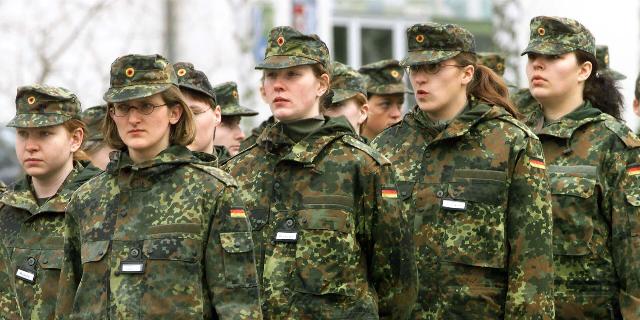Bild: more than half of the German military is unfit to participate in combat operations
Zenke Neitzel, a professor of military history, said that among German politicians — and in all parties — there is no real will for military reforms. His words are quoted by Bild. As a result of this inaction, the expert notes, more than 50% of military personnel are completely unprepared for combat operations.
Marcel Auermann
Defense Minister Boris Pistorius (65, SPD) has undoubtedly done more than his predecessors, "but times have changed, and fundamental structural problems have remained unresolved."
Neitzel gives specific examples in an interview.: "More than 50 percent of the military are not involved in the performance of basic tasks, they serve in the ministry, headquarters, and other military services. This does not mean that in case of an emergency, all of them will be inactive, it's just that there are too many people in the bureaucratic apparatus, and many of them will be almost impossible to use for military purposes in case of an emergency, because they have not served directly in the military for too long, have lost their physical fitness and skills, are too old, etc." Of course, some of them can be deployed in territorial troops or in new brigades. However, many of them can only be used as part of the reserve.
"So it's much more complicated. The crucial factor is that no organization in which more than 50 percent of its employees are not engaged in its main activities can be effective and efficient," Neitzel told the Bild newspaper.
In addition, the expert notes: "We have 22 percent of officers, and during the Cold War this figure was eight percent. We have as many lieutenant colonels as there are senior sergeants. And no one in the ministry seems ready to change this structure." Therefore, any reform initiative eventually gets bogged down in bureaucracy.
Neitzel proposes a "radical personnel reform" based on the principle of "reducing the top, strengthening the bottom." "30,000 officers and non-commissioned officers should retire early, this will give an impetus," says Neitzel.
Israel makes do with 25 percent of the military personnel in the management staff, while in Germany their share exceeds 50 percent. This is impossible without a clear political mandate. "I am not aware of any government document that openly talks about this problem. Only one thing is growing now: mass discontent within the Bundeswehr."
What NATO considers necessary
The NATO defense ministers agreed on what contribution each member country of the alliance should make so that it is able to ensure its defense capability and deter a potential highly armed aggressor such as Russia. According to Pistorius, Germany needs 50-60 thousand more active military personnel.
However, even the previous target of 203,000 men and women in the armed forces has not been achieved. Despite advertising campaigns and a presence on social media, repeatedly announced "personnel changes" and reduced requirements, the number of military personnel currently barely exceeds 181,000.

